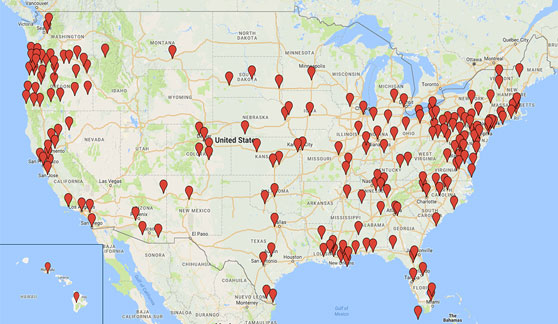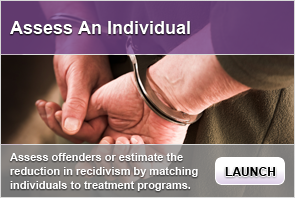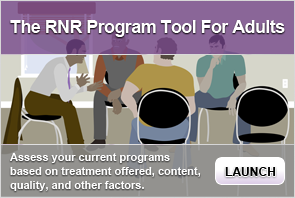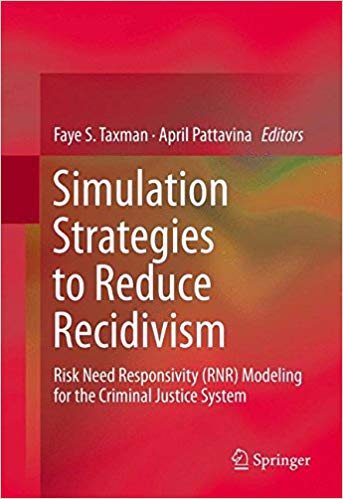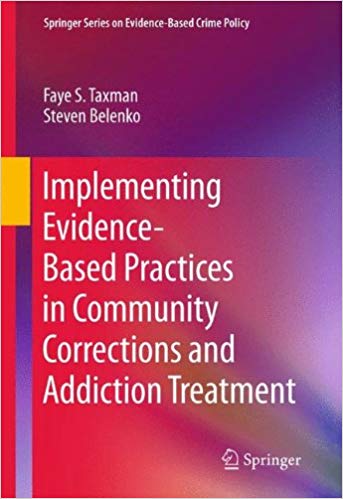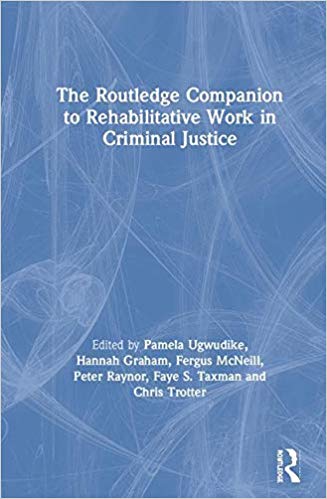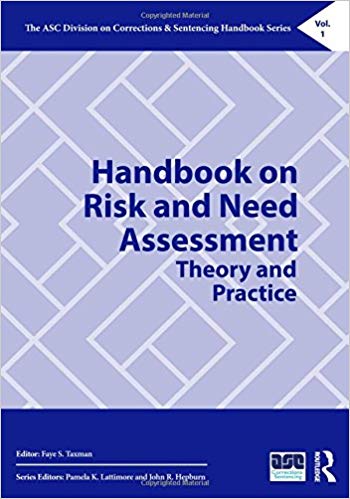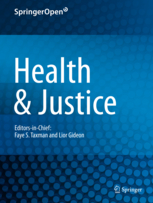JCOIN
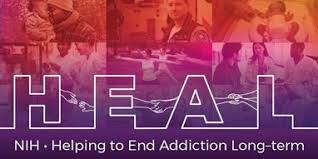
JCOIN
Funding: National Institute on Drug Abuse
The JCOIN Coordination and Translation Center (MCTC), led by Dr. Faye S. Taxman of George Mason University (Mason) are leaders in the health-justice disciplines: Jessica Nickel of Addiction Policy Forum (APF); Amy Murphy (Mason); Pam Rodriguez at Center for Health and Justice (CHJ), Treatment Alternatives for Safe Communities; Drs. Danielle S. Rudes and Rebekah Hersch (Mason); Dr. Todd Molfenter at University of Wisconsin-Madison; Dr. Warren Ferguson at University of Massachusetts School of Medicine (UMass); and, Dr. Peter Friedmann at University of Massachusetts-Baystate (UMMS). The collective team are leaders in both research and practice arenas to facilitate new policies, practices, and interventions at the individual and organizational level. Individually and collectively the team has a strong belief in, and track record for, improving the quality of care for justice-involved individuals and growing the number of scholars researching this critical justice-health arena to improve individual- and system- level outcomes, increasing the number of justice and/or health organizations engaging in research studies, and advancing the care provided to people with opioid use disorder and their families. CTC goals will include: 1) coordination among partners and infrastructure for day-to-day activities; 2) facilitation of multidirectional JCOIN communication; 3) wide dissemination of research findings; 4) development and maintenance of an education infrastructure to grow experienced justice researchers; and 5) build coalitions to better serve research-to-practice, practice-to-research goals. Five Cores will support MCTC: 1) Administrative (Admin) Core, facilitating communication across internal and external JCOIN stakeholders; 2) Rapid Response and Pilot Research (RRPR) Core, providing funding for pilot or small innovative studies; 3) Dissemination and Stakeholder Engagement (D/SE) Core, creating a participatory research partnership and providing NIDA with easy access to stakeholder groups; 4) Research Education (Learning Experiences to Advance Practice [LEAP]) Core, educating and mentoring researchers and practitioners to expand knowledge and skills; and 5) Implementation and Translational Research (I/Trans) Core, executing rigorous studies to test Dissemination and Implementation strategies to understand mechanisms that impact the effectiveness of messages and materials used with various audiences. CTC will leverage techniques and methods to design, test, and produce interactional educational and dissemination products that contain state-of-the-art science, pertinent to varied audiences. JCOIN is an important chapter to highlight where practice and research intertwine, and are mutually beneficial.
Stepping UP
Funder: National Institute on Mental Health
(with Jennifer Johnson, MSU, Jill Viglione, UCF, Rochelle Rosen, Brown University
Funder:
National Institute on Mental Health
The criminal justice system is the largest mental health provider in the U.S., and many jurisdictions are interested in reducing the use of the justice system for behavioral health issues. Now is an opportune moment, given that 455 counties have agreed to be part of Stepping Up. Specific aims are to compare Stepping Up and comparison counties on: 1) Target mechanisms including whether: (a) Stepping Up counties show a faster rate of improvement in hypothesized target mechanisms between Wave 1 and subsequent assessments (i.e., Waves 2 and 3); and (b) whether engagement of these mechanisms explains any differences found in key implementation outcomes; 2) Examine implementation outcomes such as the number of justice-involved clients served with EBPPs, number of behavioral health EBPPs available to justice-involved individuals, and resources for behavioral health EBPPs for justice-involved individuals; and, 3) Characterize implementation processes and critical incidents. We will use qualitative data to triangulate quantitative findings and enrich an understanding of how the target mechanisms work and lead to outcomes, and explore naturally occurring implementation strategies used in 910 counties that lead to outcomes. The study will advance D/I science by contributing to an understanding of 1) systemic decision-making processes in multiple systems with varied goals; and 2) how D/I efforts can target and drive policy and practice reforms.
Practice Guidesline
Funder:
Arnold Ventures
(with Joann Lee)
The American Society of Addiction Medicine (ASAM)’s Patient Placement Criteria (PPC) provides treatment recommendations based on an individual’s severity of substance use disorder. ASAM is now used by 30 states, and these guidelines have improved treatment outcomes. Community supervision agencies handle challenging populations (e.g., severe mental health disorders, substance dependence disorders, gang involved, etc.) and agencies develop their own procedures, often driven by resources or tradition. The supervision field lacks clear, guided practice statements regarding how best to manage individuals in the community. This contributes to inconsistency across agencies, and perceptions of unfair and illegitimate practices. This project proposes to use a modified RAND/University of California Los Angeles (UCLA) Appropriateness Method (RAM) process to create Practice Guidelines in six areas: Violent or Gang-Involved, Mental Health Disorders, Young Adults, Intimate Partner Violence, Driving While Intoxicated, and Substance Use Disorders. The RAM is an open source method that will be modified for this project. An expert panel consisting of five supervision officials, seven researchers, and two individuals with lived experiences will be convened for a total of 12 individuals on the panel. GMU will conduct literature reviews to understand the current state-of-knowledge, survey the field, conduct discussions with key opinion leaders, and analyze data of over 300,000 probationers to develop real-world scenarios. The real-world scenarios will be used to create appropriateness statements that articulate: 1) the type of conditions that should be used for different risk-need profiles, and 2) different responses that are appropriate for handling non-compliance to required conditions for different risk-need profiles. The Expert Panel will rate the statements on three occasions to develop a consensus. The consensus statements will be packaged into Practice Guides, one for each area, and disseminated to the field. The overarching goals are to accelerate the use of evidence-based practices for different risk-need profiles, to create more fairness in how noncompliance to conditions of supervision are handled, and to improve successful outcomes from supervision.
RNR Simulation Tool
Funder: Bureau of Justice Assistance
Designed to assist justice and treatment agencies in determining what forms of programming will be most effective in reducing recidivism and improving outcomes within their population. It is comprised of three decision-support mechanisms at the client, program, and system level. It is located at www.gmuace.org/tools.
SUSTAIN
Funder:
Bureau of Justice Assistance
This advanced eLearning and coaching toolkit is designed to assist in building skills for the effective management of individuals. Includes a values-based training to develop internal coaches to implement evidence-based supervision. Texas and Virginia have funded SUSTAIN coaching.
E-Connect
Funder:
National Institute on Mental Health
A service system intervention for justice youth at risk for suicide (PIs is Dr. Gail Wasserman, Kate Elkington, Columbia University). The specific aims are to develop and test a technological cross-system identification and linkage service model that trains staff, formalizes interagency collaboration and includes referral decision-making criteria. The tool uses a mobile application to seamlessly combine screening for suicide and related behavioral health problems.
Alameda County Probation Department (ACPD)
Funder: Bureau of Justice Assistance
This is a multi-pronged project funded by the Bureau of Justice Assistance. ACE! has an embedded criminologist (Sara Debus-Sherill) in a Probation Department. The study is of a reentry program for high risk probationers using a day reporting mode. ACPD is testing a collaborative case management process between the service provider and ACPD staff.
YOURS
YOURS is designed as an interactive workbook for individuals to assess “where they’re at” and work through their own goals. YOURS is used by both community supervision and treatment providers to empower clients. MAP is now using YOURS with peer navigators.
Emerging Adults
Funder:
Bureau of Justice Assistance
Evaluating the effectiveness of the Hidalgo County Emerging Adult Strategy, this effort motivates and facilitates change in emerging adults under community supervision in Hidalgo County, Texas. The aim is to change behavior through the use of graduated incentives with a point structure. Decision Points is being used.
Delaware RNR
Funder: DE Department of Corrections
The Delaware Department of Corrections (DE DOC) began implementing the RNR Simulation Tool in their Level 5 facilities (prisons) in 2013 and is in the process of implementing it in Level 4 facilities. DE DOC employs all three portals of the tool and uses it to examine program quality and determine where additional programming and services are needed. DE DOC conducts Assess an Individual on every individual who enters a Level 5 prison facility and uses the treatment recommendations to place them into programs. Delaware changed their policies based on the RNR Tool findings.
Improving Access to Substance Abuse EBPs for Youth in the Justice System
Funder:
National Institute on Drug Abuse
(PI, Dr. Ashli Sheidow, Oregon Social Learning Center). The goal of this study is to examine the use of contingency management (CM) in juvenile probation offices in terms of feasibility of JPOs to deliver an AOD abuse intervention, clinical efficacy for JPOs as service delivery providers and identify any barriers that would need to be addressed for JPOs to deliver such services.
JJSTEPS/JSTEPS
JSTEPS was a multi-site implementation study designed to test the feasibility and acceptability of contingency management, or a systematic use of incentives and sanctions, in probation, drug court, and reentry court settings. JJSTEPS is a modified version for youth with an emphasis on implementation.
MAPIT
Funder: National Institute on Drug Abuse
A collaboration with Dr. Scott Walters, (University of North Texas), MAPIT compared two potential ways of motivating probationers to initiate and engage in substance abuse treatment—in person motivational interviewing (MI) and a computerized program (MAPIT). MAPIT uses a theory-based algorithms and a synthetic voice program to deliver custom reflections, feedback, and suggestions.
NYC RNR
The Mayor’s Office of Criminal Justice in New York City is using the RNR methodology to assess the capacity of the system to effectively treat and divert individuals from the criminal justice system. This study advances the RNR methodologies.

